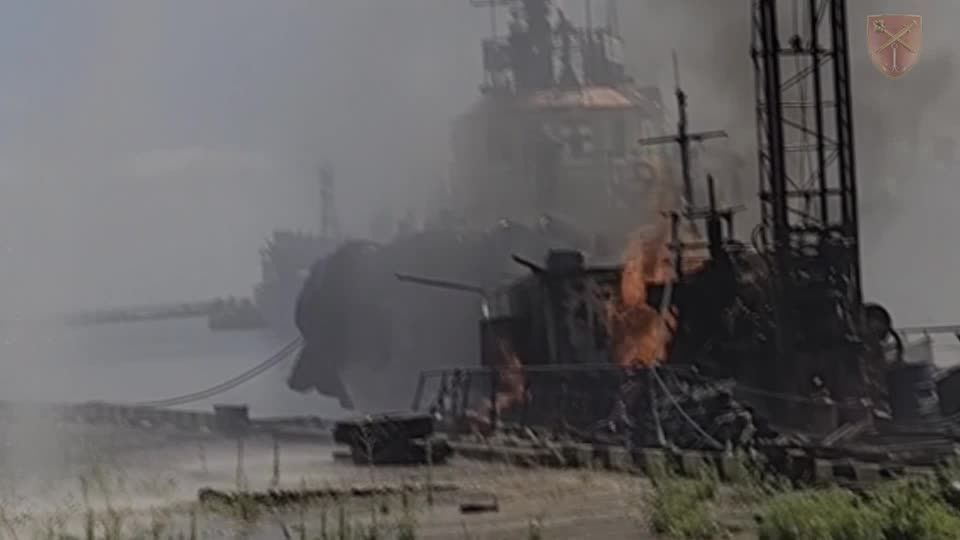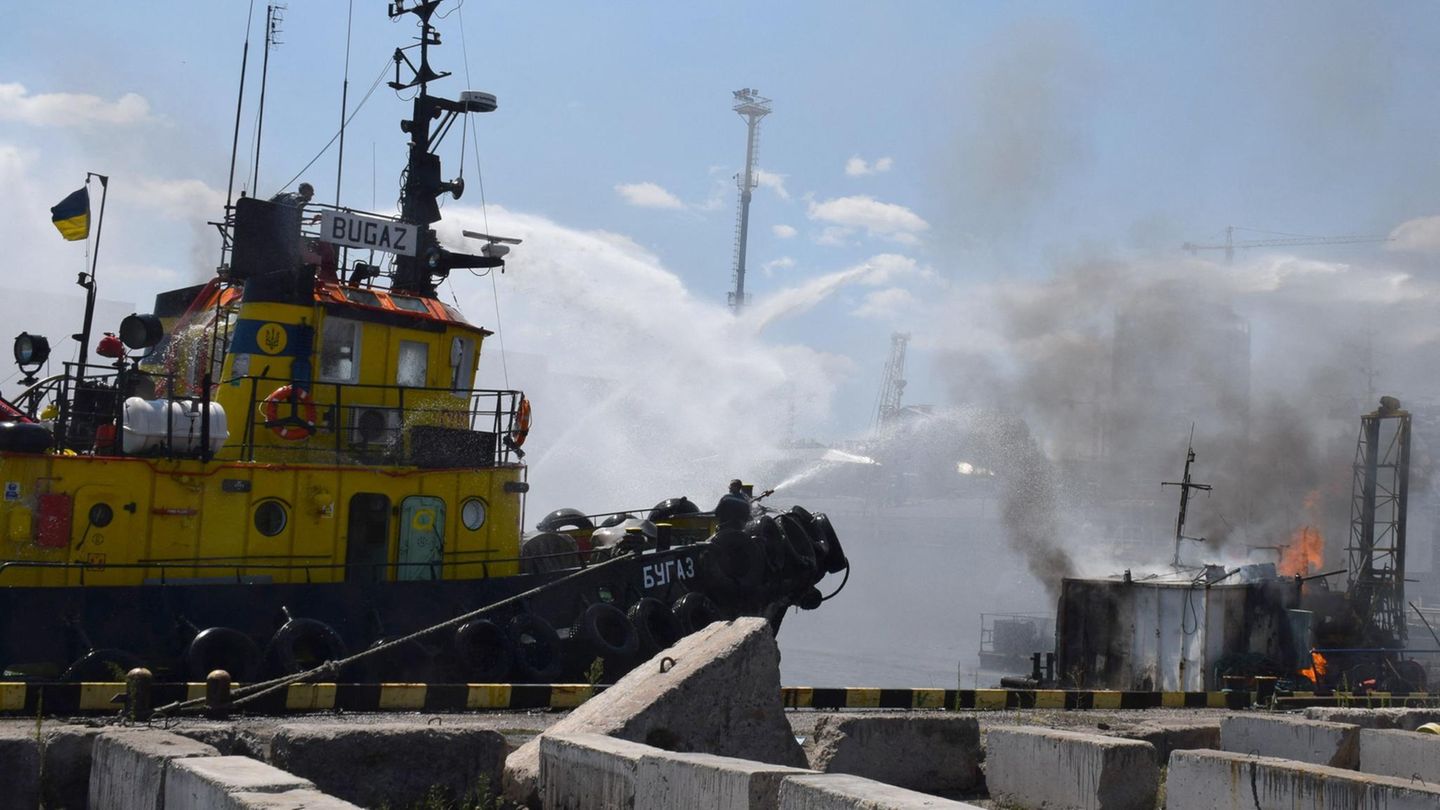Less than 24 hours after the agreement on the export of Ukrainian grain, which is important in the fight against world hunger, Russia bombed the port city of Odessa. What does the attack mean for the future of this internationally welcomed agreement?
UN Secretary-General António Guterres wanted the hard-won agreement on the export of millions of tons of Ukrainian grain to be understood as a “beacon of hope”. But it was less than 24 hours before Russia launched a missile attack on the port of Odessa on the Black Sea, which is important for exports. Large quantities of wheat and corn, which are important for feeding the world, are stored in the silos there. The new Russian missile strikes are fueling massive fears that the deal signed in Istanbul on Friday could collapse.
According to Ukrainian sources, no grain silos were hit by the “Kaliber” rocket fire. However, Ukrainian President Volodymyr Zelenskyy spoke of “obvious Russian barbarism” at the weekend. From a Russian perspective, Saturday’s attack is a clear warning shot for Ukraine.
Russia claims military infrastructure has been shelled
The Russian Foreign Ministry admitted that an object of military infrastructure had been fired upon. Spokeswoman Maria Zakharova rejected criticism on Sunday that agreements with Russia would not last and referred to Foreign Minister Sergey Lavrov’s ongoing trip to Africa. Like the Kremlin, he had declared that grain was important in the fight against hunger.
From the Russian and Ukrainian point of view, the agreement, which was largely negotiated through the mediation of UN Secretary General Guterres and Turkish President Recep Tayyip Erdogan, is still valid. For implementation, however, the technical requirements must first be met. In addition, Russia has set its own conditions and has had written concessions from the United Nations so that the agreement ultimately stands. To this end, the Russian side has signed two agreements.
Grains Agreement just signed
Defense Minister Sergei Shoigu signed a document with his Turkish counterpart Hulusi Akar in Istanbul on Friday, which provides for safe sea transport via a corridor in the Black Sea. It also expressly states that no warships, aircraft or drones may be in the vicinity of the corridor. According to Moscow, a Ukrainian warship, a depot with US-supplied “Harpoon” missiles and a dock were destroyed in the attack on the port of Odessa.
The agreement also provides for the ships to be monitored by representatives of all parties in a control center in Istanbul. According to reports, the ship inspectors have yet to be found. Days, if not weeks, may pass before the control unit is actually operational. Moscow’s representative Shoigu also pointed out that ships leaving Ukraine and those going there should be controlled. Russia fears ships calling at Ukrainian ports may have weapons on board.
War great danger for ship crews
However, it is also unclear how shipping companies can ensure traffic at all. For example, insurance issues also need to be clarified because ship crews are exposed to great danger in a war zone. For the Ukraine, however, time is of the essence because they have to clear the silos during the current harvest. Before the war, the country, which is one of the major exporters of wheat and maize, exported around 45 million tons of grain annually.
Much more important for Russia, however, is the second document, a declaration of intent signed at the same time as the Istanbul Agreement with the United Nations. Accordingly, the UN wants to work with western countries to ensure that the sanctions that are affecting Russia’s grain and fertilizer exports, among other things, are abolished. True, there are no direct sanctions on Russian food. But the impact of the punitive measures is now such that the giant empire can no longer do business.
Russia complains about sanctions
Russia is complaining about massive restrictions on its international shipping traffic, which is used to transport grain and fertilizers, as a result of the sanctions imposed by the West. For example, Russian ships are no longer allowed to call at many ports or receive no insurance. The sanctions in the financial sector also make it difficult to process payments. Kremlin boss Vladimir Putin had therefore recently emphasized that there could only be a package solution – for Ukrainian and Russian grain.
With a view to the explosion in prices for food, energy sources and other raw materials, Putin had repeatedly called on the West to abolish the sanctions imposed because of Russia’s war in Ukraine. The EU and the US reject this. However, Defense Minister Shoigu also stressed on Friday that for Moscow the two documents on Ukraine’s grain exports and on Russia’s goals are linked.

Whether Ukrainian grain actually makes it onto the world market and helps to fight hunger depends to a large extent on whether Russia can also export. Like the Ukraine, Russia does not want to miss out on the billions in revenue from grain sales. For this, however, the country is now dependent on the United Nations actually succeeding in reducing the sanctions pressure on Russia. After the attack on the port of Odessa, however, Russia has again come under international criticism – and is now urgently required to implement the Istanbul agreement.
Source: Stern
David William is a talented author who has made a name for himself in the world of writing. He is a professional author who writes on a wide range of topics, from general interest to opinion news. David is currently working as a writer at 24 hours worlds where he brings his unique perspective and in-depth research to his articles, making them both informative and engaging.




